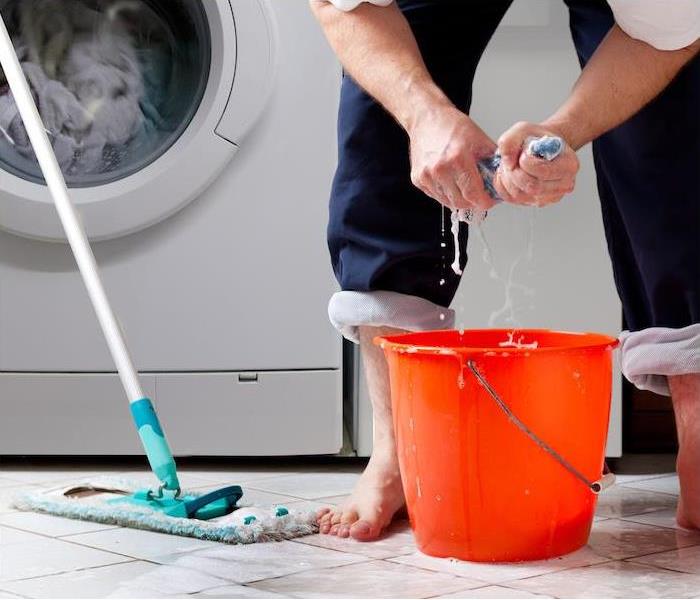Trust SERVPRO of Central Union County to Protect Your Home From Water Damage
3/6/2019 (Permalink)
Did you know water damage can be one of the most common and costliest disasters your home may experience? Anything from a burst pipe to a malfunctioning dishwasher or storm damage are some of the countless ways water could cause damage in your home.
Fortunately, there are some steps you can take to protect your home. Read on as we take a look.
Learning How to Protect Your Home
Besides dealing with the damage from the water itself, there is also the potential for long-term impacts on your home. Mold is one of the most common and dangerous side effects of water damage, as mold begins to grow within 24–48 hours of exposure to moisture.
As you consider ways to protect your home from water damage, it can be a less daunting task to break it down by areas of impact. These areas would include basements, kitchens, bathrooms, flooring and ceilings.
Water damage in the basement can be prevented by checking for and remedying water seepage by resealing vulnerable areas of the basement, making sure water is draining away from your home and installing a backwater valve.
Plumbing issues and appliance failures are the major causes of water damage in your kitchen and bathrooms.
Be sure that you regularly:
- Inspect all appliances, watching for issues with hoses and faucets
- Check the seals and caulking around your showers and tubs to make sure they are watertight
- Know where the main shut-off valve is in your home
- Never leave your home while the washer or dishwasher are in use
Protecting the possessions in your home from water damage is a different story and not always possible, but there are things you can do to at least decrease the amount of loss. It is advisable to use waterproof bins to store items and to store your possessions on shelving off of the floor—especially in the basement.
Knowing Where to Start
If your home does fall victim to a water damage situation, you can stand a good chance at salvaging items that can be dried out within 48 hours.
Be sure to contact your insurance provider first thing and evaluate how much water damage has affected your home as well as identify the type of water that is involved.
The three types of water are:
“Clean” water. Can be from rain, condensation, leaky pipes, etc.
“Gray” water. Slightly dirty water from dishwashers, washing machines, clean toilets, etc.
“Black” water. Water from sewage or serious flooding from nearby rivers, etc. This water can cause serious health problems.
It is important that, following a water damage disaster, you get your home dried out, dehumidify the area, remove wet objects and disinfect remaining materials as soon as it is safely possible.
Pro tip: Books, photos and papers can be placed in a frost-free freezer to allow some extra time, which prevents mold and mildew from developing and causing more deterioration. Once you are able to do so, remove them from the freezer and air-dry or fan-dry the pages.
It may seem like recovering from water damage is an overwhelming and slightly impossible task, but it doesn’t have to be. You can call on the highly trained experts at SERVPRO® of Central Union County, who are here to make it "Like it never even happened"






 24/7 Emergency Service
24/7 Emergency Service